Toyota Camry is an iconic car, but not every year is the same.
Based on expert analysis and real user data, we have classified each Toyota Camry model year into three categories: best, neutral, and worst.
Our goal is to provide you with a comprehensive understanding of the Camry lineage by describing each generation’s strengths and weaknesses, issues faced, and advances made.
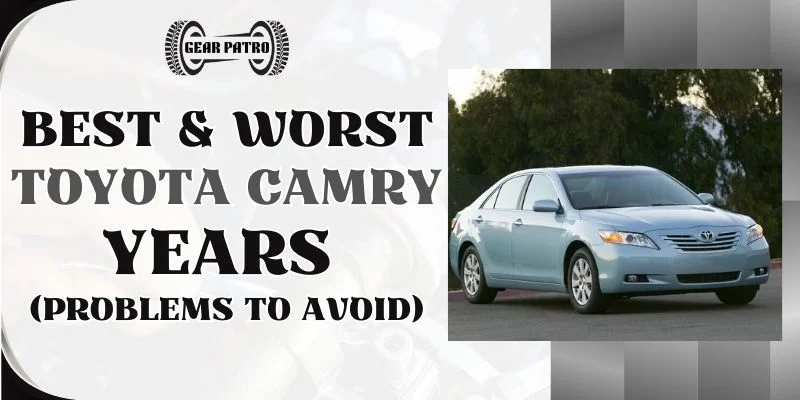
Since its introduction in 1982, the Toyota Camry has grown into one of the world’s most popular passenger cars.
It is an excellent choice for families and individuals seeking a reliable midsize car because of its reliability, impressive safety features, and efficient performance.
The first thing we will do is show you the different generations of Toyota Camry.
Toyota Camry (Wide Body) Generations
This popular sedan gained a wider and more robust appeal with the 1992 wide-body Toyota Camry. Design and engineering changed dramatically, setting a new standard for midsize sedans.
As shown in the table below, the wide-body Camry has been produced in six generations:
| Generation | Years |
| 1st generation (XV10) | 1992-1996 |
| 2nd generation (XV20) | 1997-2001 |
| 3rd generation (XV30) | 2002-2006 |
| 4th generation (XV40) | 2007-2011 |
| 5th generation (XV50) | 2012-2017 |
| 6th generation (XV70) | 2018-Present |
In order to provide a clear picture of how the Camry has evolved over time, we have categorized them into generations. Changing technology, safety, and overall design between generations are often deciding factors for potential buyers.
Toyota Camry Best, Neutral and Worst Years
The following factors were taken into account when determining the best and worst years:
To provide an overall score for each model year, we’ve compiled all the ratings from all the sources mentioned above.
For each of these Camry generations, the following table represents the Best, Neutral, and Worst years:
| Generation | Best Years | Neutral Years | Worst Years |
| 1st generation | 1995 | 1993 1994 1996 | 1992 |
| 2nd generation | 1998 2000 | 1997 1999 | 2001 |
| 3rd generation | 2004 2005 | 2006 | 2002 2003 |
| 4th generation | 2010 2011 | N/A | 2007 2008 2009 |
| 5th generation | 2014 2017 | 2013 | 2012 2015 2016 |
| 6th generation | 2022 | 2018 2019 2020 2023 | 2021 |
In the categories evaluated, neutral years are those that neither excelled particularly well nor did poorly. There were few significant recalls or complaints associated with these models, so they generally performed well.
Recalls and complaints from the NHTSA negatively influence the reliability score of a car. In general, the more recalls and complaints a car receives, the lower its reliability, and therefore, the lower its score.
Taking a deeper look at the data will give us a better understanding of each generation and their corresponding years.
Best & Worst Years for Toyota Camry 1st Generation (1992-1996)
After the Corolla, the first-generation Toyota Camry marked a paradigm shift in the midsize sedan market.
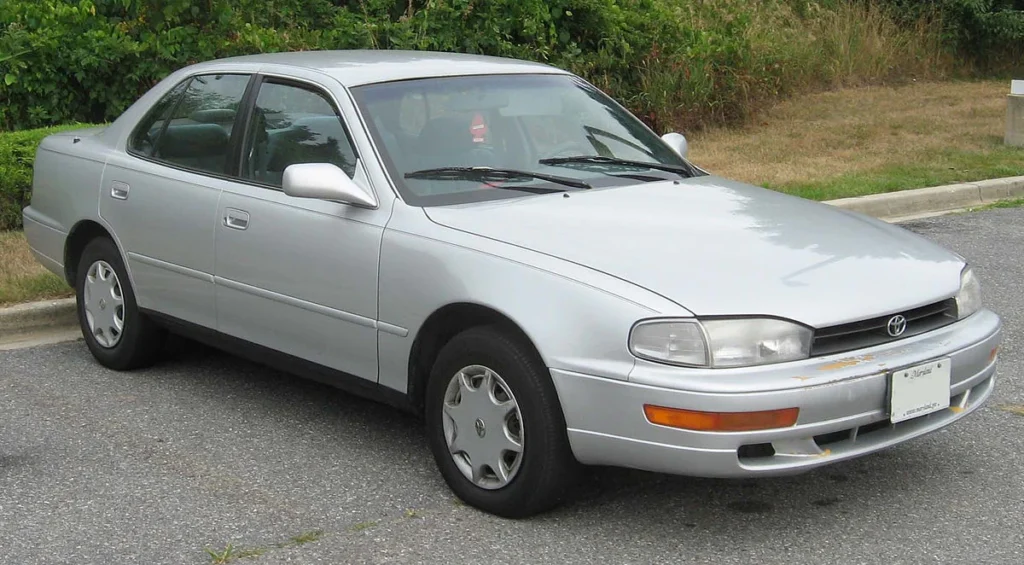
The Best Years: 1995, 1996
In terms of the first generation, 1995 and 1996 stand out as the pinnacles. They had a durable and reliable engine. This model featured an electronic fuel injection system, an advanced transmission system, and an advanced transmission system for its time.
With dual front airbags and anti-lock brakes, the vehicle’s safety was also prioritized. The 1995 and 1996 models were extremely reliable, technologically advanced, and secure, making them very popular with consumers.
The Neutral Years: 1993, 1994
In spite of their inconsistent performance levels, the 1993 and 1994 models made gradual improvements in technology, safety, and design.
Camry was known for its reliability and comfort during these model years, earning its neutral status.
The Worst Years: 1992
Although the 1992 model year launched the first-generation Camry, it suffered from a significant number of structural issues. Numerous complaints were received from customers due to these reliability and performance issues.
This model year was plagued by transmission problems and reports of engine failures, making it one of the worst models on the market.
Best & Worst Years for Toyota Camry 2nd Generation (1997-2001)
Toyota Camry gained a reputation for reliability and performance during its second generation (1997-2001).
Other than 2001, the Camry was the most popular passenger car in the United States during this time period.
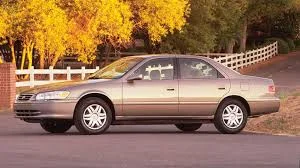
The Best Years: 1998, 2000
The best years of this generation were 1998 and 2000. These cars provided a seamless driving experience due to their improved interior quality, improved powertrain performance, and better fuel economy.
The introduction of optional side airbags during this time period improved passenger safety.
In particular, the 2000 model delivered excellent performance without sacrificing fuel efficiency with its reliable 3.0-liter V6 engine.
The Neutral Years: 1997, 1999
Camry models from 1997 and 1999 were dependable and efficient, but they didn’t provide any major innovations.
With a solid performance, better fuel efficiency, and enhanced safety features, the 1997 Camry set the pace for the second generation. Despite incremental improvements in technology and design, the 1999 model continued to perform well.
In the neutral year of Camry, both models were reliable and comfortable, but did not introduce any significant changes that separated them from one another.
The Worst Years: 2001
The 2001 Camry faced some challenges despite its significant successes. There were numerous issues with the engine and transmission of the model.
NHTSA received a flood of complaints related to oil leakages, premature engine failures, and transmission hesitation. Second-generation Toyota Camry’s reliability scores and consumer satisfaction declined due to these challenges, making it the worst year for the model.
Best & Worst Years for Toyota Camry 3rd Generation (2002-2006)
In the 2003-2006 generation, the Camry was redesigned and reengineered with a renewed focus on performance and design. The year was a mixed bag of successes and challenges, resulting in a mix of best, neutral, and worst years.
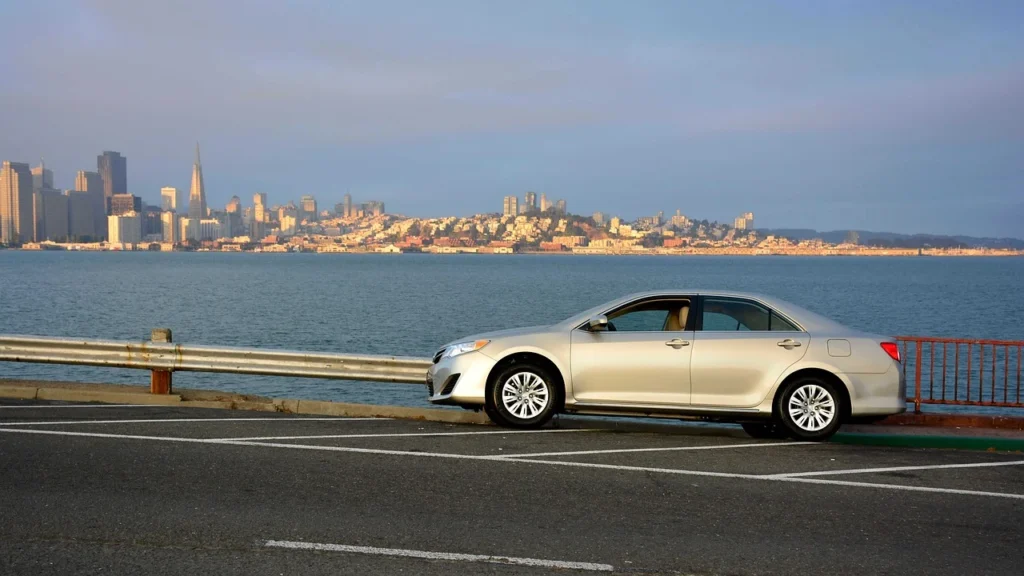
The Best Years: 2004, 2005
As far as the third generation is concerned, the 2004 and 2005 models are the best. The performance, comfort, and safety of these vehicles have significantly improved over the past few years.
Camry’s safety profile has been greatly improved by the installation of side-curtain airbags and Vehicle Stability Control.
These models featured upgraded 3.3L V6 engines in the SE trim level that enhanced power and safety.
The Neutral Years: 2006
A neutral year is marked for the 2006 Camry. However, it didn’t quite match the success of the 2004 and 2005 models despite demonstrating advanced safety technology and achieving better fuel efficiency.
There were no significant complaints about the 2006 Camry, which maintains Toyota’s reputation for reliability and performance.
The Worst Years: 2002, 2003
In spite of the third generation’s overall success, the 2002 and 2003 models faced a variety of problems, causing them to be classified as the poorest years. According to the NHTSA, there were 1037 complaints regarding the 2002 model, mostly about the vehicle speed control, brakes, hydraulics, and engine.
Unintentional acceleration, brake failure, and oil leakage have been reported by owners. The same issues continued to plague the 2003 model year. Several recalls and a drop in reliability scores were caused by brake and engine problems reported by consumers.
The Camry’s otherwise reliable performance was overshadowed by these significant challenges, making 2002 and 2003 among the worst years for the car.
Toyota Camry recalls from 2002 and 2003 can be found on the NHTSA website.
Best & Worst Years for Toyota Camry 4th Generation (2007-2011)
With its powerful engines and added safety features, the fourth-generation Camry was produced from 2007 to 2011.
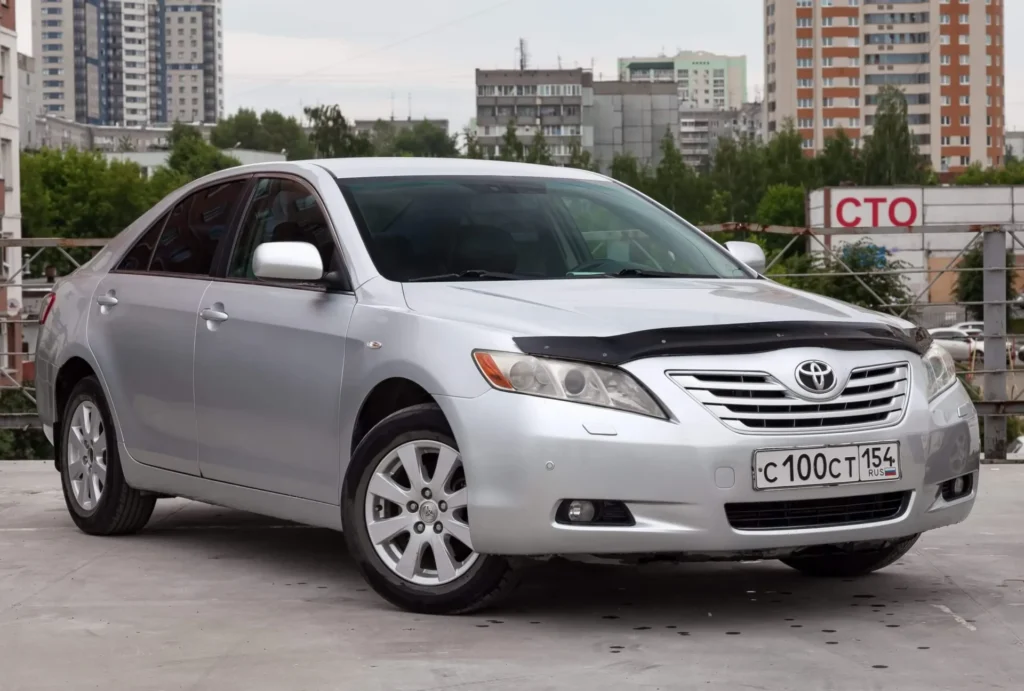
The Best Years: 2010, 2011
In the fourth generation, 2010 and 2011 were the best years. During these years, Toyota significantly improved engine efficiency, resulting in both better performance and fuel efficiency.
An anti-lock brake system, stability control, and traction control all contributed to the safety of the ride.
Particularly the 2011 model was praised for its high owner satisfaction ratings, great gas mileage, and powerful, available V6 engine.
The Worst Years: 2007, 2008, 2009
This generation experienced a number of serious problems in its initial years – 2007, 2008, and 2009.
The 2007 model was the subject of 3572 NHTSA complaints and 11 recalls, mostly concerning the engine, speed control, brakes, structural problems, and visibility. Drivers were faced with severe visibility problems as a result of a prevalent dashboard defect.
Oil consumption was excessive in these years, resulting in premature engine wear. Unintended acceleration was caused by a problem with the vehicle’s speed control.
This considerable problem negatively affected reliability scores, making these the worst years for the fourth-generation Camry.
Recalls for Toyota Camry from 2007-2009.
Best & Worst Years for Toyota Camry 5th Generation (2012-2017)
With the introduction of Toyota’s Hybrid Synergy Drive system in the fifth-generation Camry (2012-2017), Camry sales in Japan surged. Especially in its home market, this marked the beginning of a new era for the Camry.
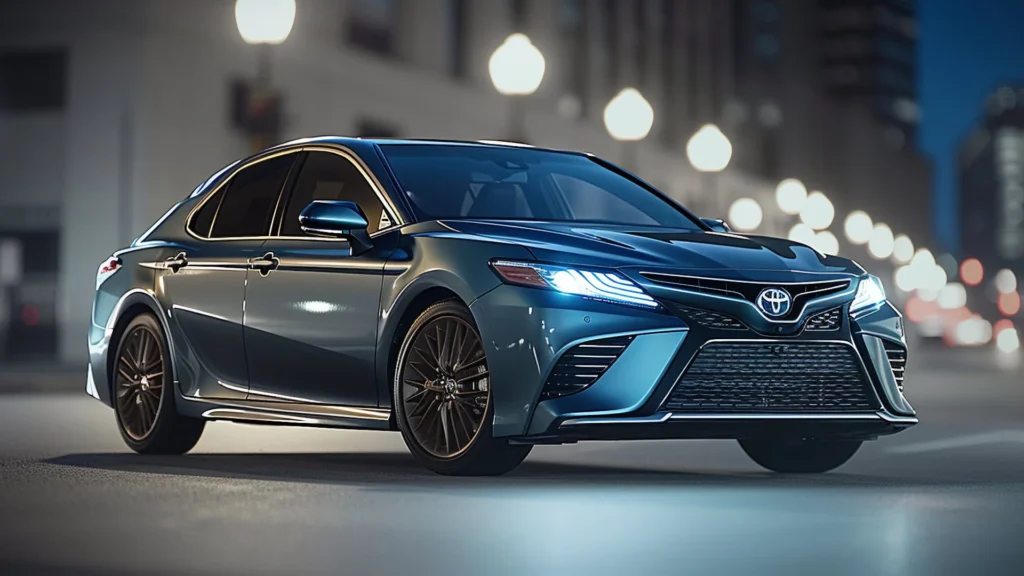
The Best Years: 2014, 2017
This generation’s best years were 2014 and 2017. Particularly for the 2017 model year, the engine, advanced technology, and safety features were praised.
This model was notable for its improved fuel efficiency and overall ride comfort, contributing to the high owner satisfaction rating.
The Neutral Years: 2013
A neutral year for this generation is the 2013 model year. However, it did not suffer from any significant problems, unlike the 2014 and 2017 models.
With incremental improvements in interior quality, ride comfort, and safety features, the 2013 Camry continued the tradition of providing a comfortable, reliable midsize sedan.
The Worst Years: 2012, 2015, 2016
Models from 2012, 2015, and 2016 faced numerous issues, making them the worst years of the fifth generation.
Its brakes and powertrain suffered many complaints during the 2012 model year.
As a result of brake failures and excessive oil consumption, owners reported lower reliability ratings.
Best & Worst Years for Toyota Camry 6th Generation (2018-2023)
Camry’s sixth generation (2018-present) embodies modern technology, improved safety, and superior performance, demonstrating the evolution of the automobile industry. In spite of this, it has seen both highs and lows, like any product.
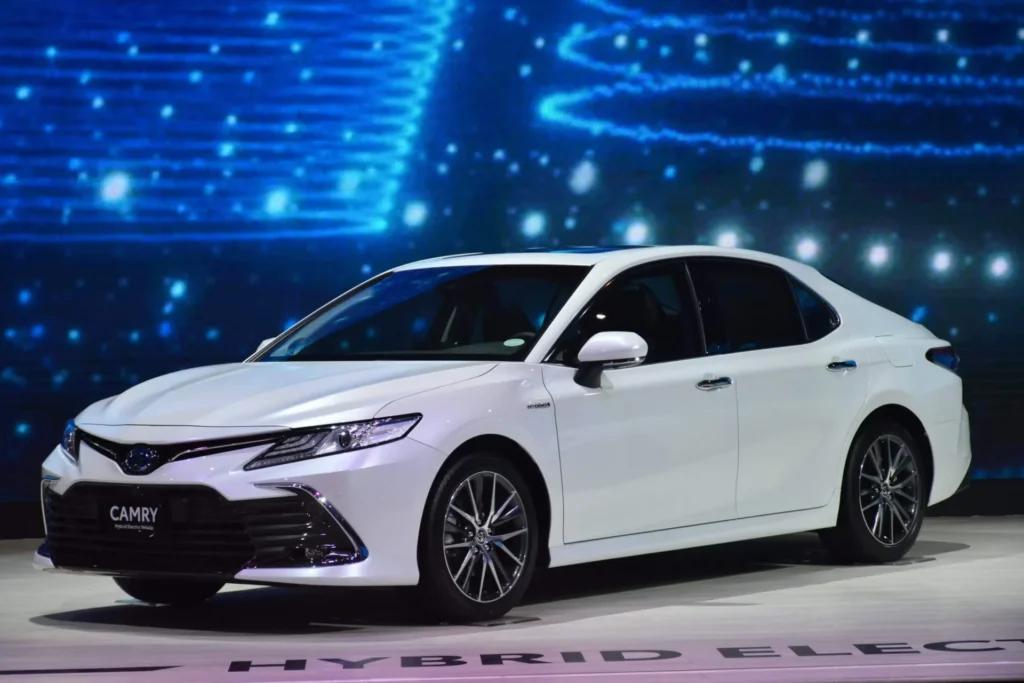
The Best Years: 2022
A few key improvements distinguish the 2022 Camry from its predecessors, making it the most successful model year so far in this generation.
It represents the best of what the sixth-generation Camry has to offer in terms of performance and reliability.
In addition to Toyota Safety Sense 2.5+ (TSS 2.5+) package, the 2022 model is equipped with enhanced safety features that ensure passenger safety. In addition, the 2022 model offers a more powerful and efficient engine.
The way we consume entertainment has changed dramatically. With the rise of streaming platforms, viewers now have an ocean of content at their fingertips. PikaShow is making waves in this space, offering a diverse selection of movies and TV shows. But is it right for you? Let’s explore.
The Neutral Years: 2018, 2019, 2020, 2023
Sixth generation Camry models will be available in 2018, 2019, 2020, and 2023.
Their neutral status is due to the fact that neither they introduced groundbreaking improvements nor presented substantial drawbacks.
The Worst Years: 2021
Camry’s model year 2021 faced substantial challenges, on the other hand. According to consumer reports, this generation has the lowest levels of owner satisfaction and reliability.
Fuel system, airbag, and brake problems have been reported by owners. In addition to malfunctioning occupant sensors, the airbag system had a warning light that illuminated when the airbags were deployed.
Last but not least, some 2021 Camry owners reported problems with the brake system, including unexpected activation of brake assist and stability control.
Best & Worst Toyota RAV4 Years (Years To Avoid)
Best & Worst Toyota Tacoma Years | Years To Avoid
Best & Worst Toyota Highlander Years | Years To Avoid
Best & Worst Toyota Corolla Years | Years To Avoid
Best & Worst Toyota Sienna Years | Years To Avoid
Best & Worst Toyota Tundra Years | Years To Avoid
Best & Worst Toyota 4Runner Years | Years To Avoid
Best & Worst Toyota Sienna Years | Years To Avoid
Best & Worst Toyota Prius Years | Years To Avoid
Best & Worst Toyota Avalon Years | Years To Avoid
FAQs
Which year of Camry is most reliable?
Used Toyota Camrys from 2009-2011 received 4/5 or 5/5 reliability scores in every category. Since they are over a decade old, these used cars are priced well in Columbus, Ohio.
What years did Toyota Camry have problems?
Oil leaks, sludge buildup, early transmission failures, brake problems, excessive oil consumption, and other electrical problems were also reported for the 2004 to 2010 model years. If you are planning to purchase a car between 2004 and 2010, make sure you check the details.
How Long Can I Expect My Camry to Last?
It is possible for a Toyota Camry to have a lifespan of 200,000 miles with proper maintenance. The car can still last 20 years if you drive 10,000 miles a year, which is nice if you buy an off-lease vehicle. However, the Camry has also been known to reach 300,000 miles.
Conclusion
Now you have the information you need to make an informed decision when purchasing a Toyota Camry. Choose a Toyota Camry from the best years and avoid the worst ones!
Do you have a favorite model year as a car enthusiast or owner of the Camry? What are your thoughts on the Camry’s evolution?
If you have any insights or personal experience with the Camry, we’d love to hear them. Comment below with your thoughts.
